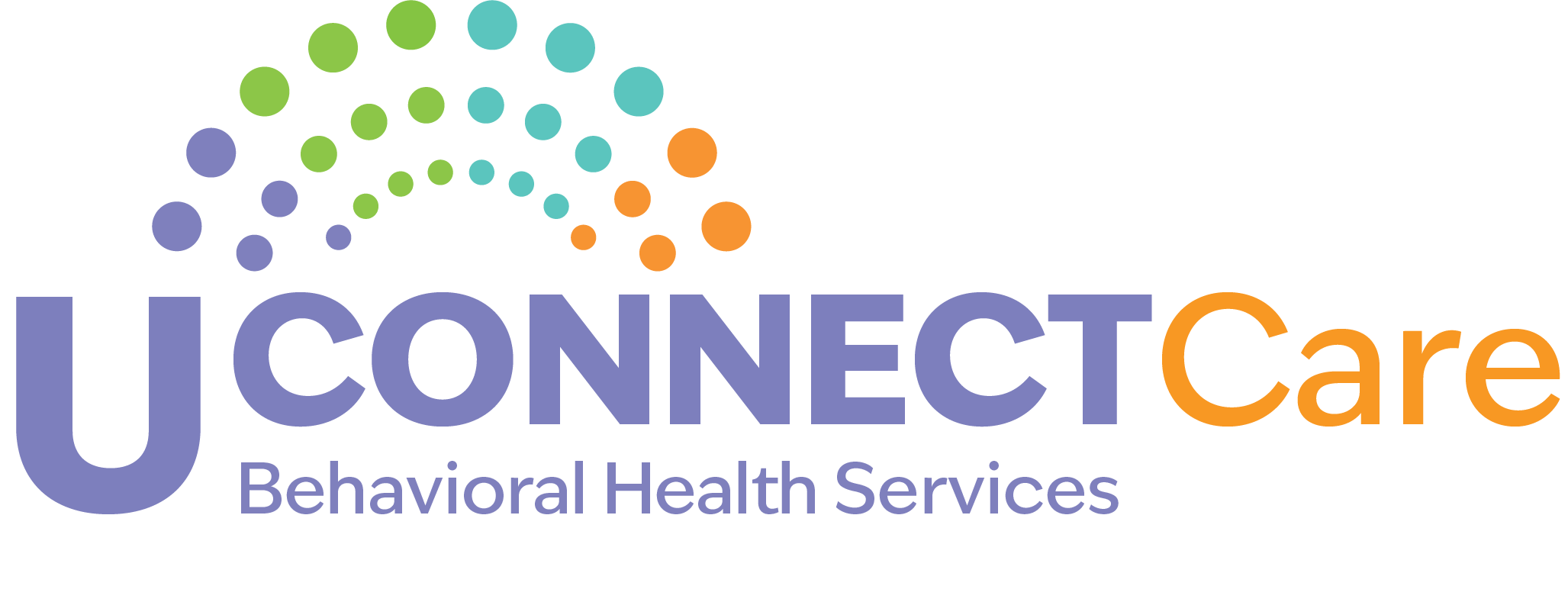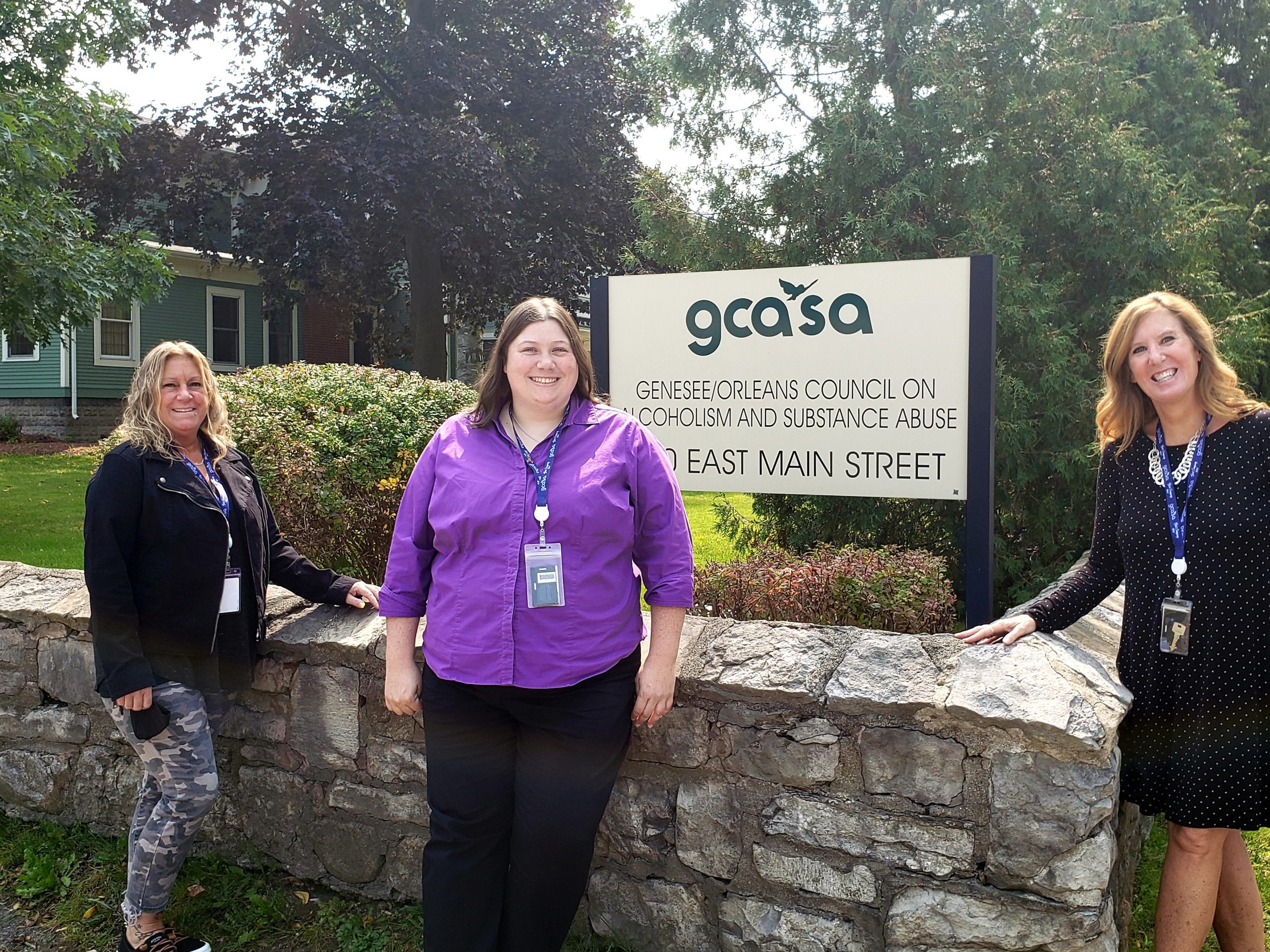By Mike Pettinella
Developing and implementing a program that focuses on the individual’s needs and goals while reducing the stigma of addiction serve to motivate and inspire the managers and staff of treatment and residential services at Genesee/Orleans Council on Alcoholism and Substance Abuse.
“We individualize our treatment plans depending upon the person, and we do try to accommodate people on the same day that they call, especially if they need medicine,” Chief Clinical Officer Kathy Hodgins said.
Hodgins, who supervises outpatient treatment clinics in Batavia and Albion as well as the Opioid Treatment Program clinic in Batavia, said the professional counselors and therapists at UConnectCare are committed to listening to their patients and learning about their history as they formulate the best way to proceed.
“Everyone gets a full assessment, which includes a health screening,” she said. “We do the diagnosis. We encourage family members to attend – we do like to talk to family members to get their perspective – and we interview the person. If they meet the criteria, after diagnosis, we engage them in treatment as soon as possible.”
Hodgins said counselors set up the treatment plan that fits the patient’s needs, including what groups to attend.
“We do service co-gender – women’s groups, men’s groups, and groups that address substance use disorder and mental health issues. And adolescents as well. The majority of our patients are required to attend both group and individual counseling sessions,” she said.
Shannon Murphy, director of outpatient treatment services in Batavia, said UConnectCare is “unique because we really do look at every story and every person – we take the time to get to know the story.”
“When someone comes in and they’re sick and they’re scared, we help them immediately,” she said. “You’re not going to get anywhere with them until they feel comfortable.”
Murphy said that type of personalized service starts with the support staff and carries through to the counselors, directors, medical staff and top management.
“If somebody calls us and they need help today – and they’re struggling – then we’re going to provide that help today. All the directors have a fantastic relationship; we’re a great group of women who support each other.”
Nicole Davis, director of residential services; Jodi Calkins, director of opioid treatment services; and Allison Parry-Gurak, director of treatment services in Albion, are the other members of the supervisory team.
“Our philosophy is very patient-centered,” said Calkins, who noted that the OTP clinic located at the East Main Street, Batavia, campus just celebrated its two-year anniversary. “We listen to what the patients say and work to the best of our ability to meet their needs and their expectations. It’s not what we want for them, it’s what they want to do to get to where they want to be.”
Davis said treatment is a key component of the services offered to residents at the Atwater House on East Main Street.
“I think there’s some misinterpretation regarding residential services in this field. We’re not just housing, we’re actually treatment, too. Ultimately, we do groups, assessments, we do individual treatment,” she explained.
She said her employees have “an advantage” in that they see people in a home setting and are able to work on daily living skills.
“Some people come into treatment after living in a tent in the woods. Many times, their upbringing hasn’t accounted for proper hygiene skills or how to make a bed, or holding themselves accountable for taking their prescribed medication,” she said. “We’re a supportive piggy-back to the outpatient treatment where they do intense clinical care.”
The road to treatment and recovery starts with a phone call, Hodgins said.
“It’s as simple as that. We have the methadone (OTP) clinic, the Batavia and Albion clinics, Peer Recovery Advocates as support and, if needed, the Atwater House residential facility,” she said. “So, we’re asking everyone to call, so that we are prepared for them, following all of the (COVID-19) protocols that are in place.”
Once admitted into the program, patients will be assigned a counselor, and it will be determined which type or types of therapies are most appropriate.
“Most of our counselors are CASAC (Certified Alcohol and Substance Abuse Counselor) or they’re working towards it,” Hodgins said. “We have Master’s level counselors that are working toward CASAC … we’re social workers and mental health therapists – the entire gamut.”
Hodgins said evidence-based treatment therapies are used and “each one is individualized – we’re not a cookie-cutter agency.”
Special groups include Relapse Prevention, Relapse Intervention, Grief and Loss, Anger Management and Medication Assisted Treatment.
Regardless of the type(s) of plan utilized, Hodgins emphasized that the treatment staff at UConnectCare doesn’t give up on its patients.
“Sometimes it takes a person seven or eight times to get it, but here’s the thing – they come back to us,” she said. “Our mission is to reduce the negative stigma of addiction, and we don’t judge. We treat them as human beings – they’re parents, they’re daughters, they’re mothers, they’re fathers.
“They may not be successful the first time and they may drop out for whatever reason, but they come back. And when they come back, we’re going to welcome them and say, ‘We’re glad you’re back, and how can we help you.’ Because you never know when somebody is ready.”

